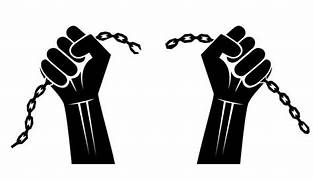In the collective memory of Canada, the narrative of slavery is often missing, overshadowed by stories of the country as a terminal of the Underground Railroad. Yet, the untold tales of slavery within Canada’s own borders, involving both Black and Indigenous peoples, are crucial to understanding the nation’s complex history with race and identity.
Canada’s involvement in the transatlantic slave trade and its practice of slavery from the late 1600s to the early 1800s remains a largely untold chapter of its history. This period saw the enslavement of thousands, predominantly of Indigenous descent, across the colonies that later formed Canada.
The narrative of slavery in Canada is not just about subjugation but also about resistance and survival against incredible odds. Stories like that of Chloe Cooley, whose struggle against her enslavement in 1793 helped catalyze the abolition of slavery in the British Empire, are seminal. Equally significant is the tale of Marie-Joseph Angélique, a Black enslaved woman in Montreal, whose 1734 conviction for arson and subsequent execution after burning down much of Montreal, underscores the desperate acts of resistance by enslaved people.
The legacy of slavery in Canada extends far beyond historical records. It has shaped societal structures and attitudes, contributing to systemic racism and racial hierarchies that persist in modern Canada. This legacy influences today’s discussions around race, inequality, and discrimination, making it imperative to acknowledge and confront this past to understand contemporary issues.
The global resurgence of the “Black Lives Matter” movement, particularly following the murder of George Floyd, has reignited conversations about Canada’s history of slavery. There’s a growing demand for reexamining national symbols and commemorative practices linked to historical figures who were slave owners. Activists are calling for actions such as renaming streets and schools, as well as advocating for the recognition of Emancipation Day as a national holiday.
Researchers like Natasha Henry are striving to uncover and publicize the stories of enslaved individuals in early Canada. Henry’s doctoral research, titled “One Too Many: The Enslavement of Africans in Early Ontario, 1760 – 1834,” seeks to illuminate this obscured part of Canadian history. Such scholarly work is vital in painting a more accurate picture of Canada’s past and its impact on present-day society.
Understanding Canada’s history of slavery is integral to the country’s journey toward reconciliation and equality. Recognizing the contributions and sufferings of enslaved Black and Indigenous peoples is essential in addressing the systemic racism and inequalities that their descendants face today.
Today, Canada grapples with the remnants of its past in the form of racial disparities and prejudices. The stories of enslaved individuals, though painful, are powerful reminders of resilience and resistance. They challenge Canadians to confront uncomfortable truths and work towards a more inclusive and equitable society.
The untold stories of slavery in Canada are not mere footnotes in history; they are central to understanding the nation’s relationship with race and identity. Acknowledging and learning from these stories is crucial for Canada to move forward as a nation that truly embraces its diversity and strives for racial equality.
